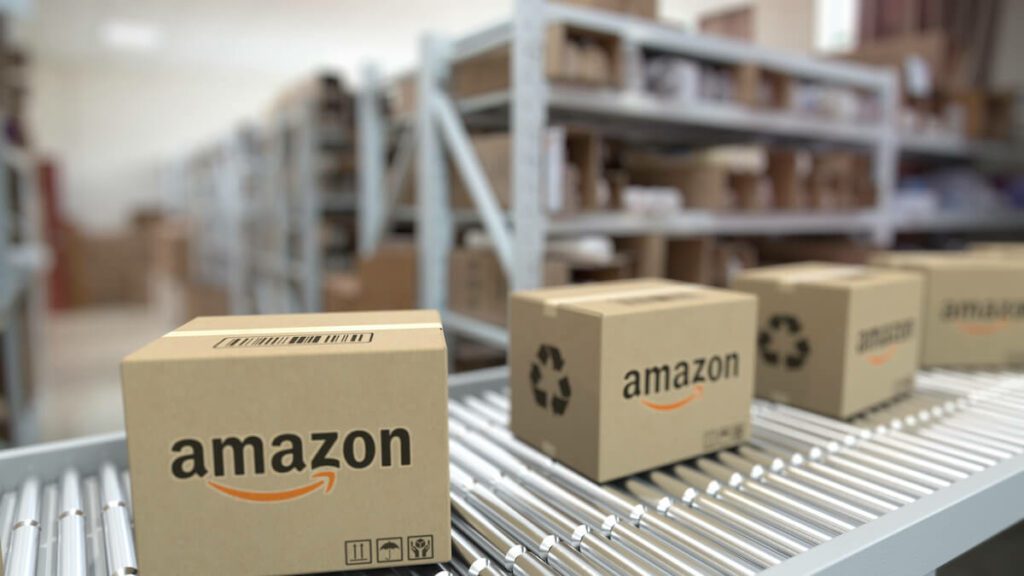Here’s a hard truth: If you’re selling on Amazon without the right insurance, you’re playing with fire.
Every day, countless sellers face legal battles that could’ve been avoided. Don’t be one of them. Dive into this guide to safeguard your Amazon business.
Why Do Amazon Sellers Need Insurance?
As you venture into the vast world of Amazon selling, whether it be private labeling or retail arbitrage, it’s easy to be dazzled by the promise of profits and prosperity.
But beneath the surface lies a critical question many overlook: Are you truly protected from potential pitfalls?
Take a moment and consider a scenario where a customer claims a product you sold malfunctioned and wreaked havoc on their property. Without the safety net of insurance, you’re left vulnerable, grappling with potential lawsuits and out-of-pocket expenses.
This is where Amazon seller insurance steps in, not just as a safety net, but as a vital parachute, always ready for those unexpected free-falls.

What Are Amazon Seller Insurance Requirements?
When navigating the intricacies of setting up your Amazon store, one detail you can’t afford to overlook is insurance.
And Amazon leaves little room for ambiguity – If you’re a Pro Merchant or if your monthly sales surpass $10,000 in any given month, Commercial General Liability Insurance isn’t optional. It’s a demand.
Insurance Policy Criteria
Amazon is unequivocal about how much liability insurance you require: a robust coverage of at least $1 million, both per occurrence and in aggregate.
This isn’t arbitrary. It’s a protective measure, safeguarding businesses from a number of potential liabilities – from product-induced injuries to operational mishaps.
But it’s not solely about the numbers. The type of policy and what’s in it matters:
- The policy type: While options like commercial general, umbrella, or excess liability are on the table, they predominantly need to be occurrence-based, with some wiggle room for specific product categories
- Both claims-made and occurrence policy types are accepted in some instances, but Amazon specifies that claims-made policyholders must obtain a 3-year tail coverage
- Your insurance policy must name Amazon and its assignees as additional insureds
- Amazon requires your insurer to have global claim handling capability and a financial rating of ‘S&P A-’ and/or ‘AM Best A-’ or better
- The deductible for any policy or policies for Amazon liability insurance must not be greater than $10,000
- The policy must cover all sales of products that you have listed on the Amazon website
- Your insured name must match the legal entity name you provided to Amazon
These are just a selection of stringent Amazon liability insurance requirements. That’s why our policies are specifically designed for Amazon sellers, taking the stress out of finding the right coverage.
From getting your quote and receiving your policy documents to uploading your certificate of insurance to Amazon, we’ve got you covered.
Sign up today to receive your quote in minutes.
No obligation quote.
Policies can be canceled at any time, with 30 days’ notice.
Will Amazon Cover Any Claims?

Yes – but don’t get your hopes up just yet. This ‘yes’ comes with some conditions.
Amazon has an A-to-Z guarantee which aims to cover property damage and personal injury. The policy states:
“Amazon will directly pay customers for claims under $1,000—which account for more than 80% of cases—at no cost to sellers, and may step in to pay claims for higher amounts if the seller is unresponsive or rejects a claim we believe to be valid.”
The policy then goes on to say:
“Amazon will bear these costs and not seek reimbursement from sellers who abide by our policies and hold valid insurance.“
This, in short, means that as long as you hold valid, Amazon-approved insurance, Amazon will handle any claims under $1,000.
What Types of Business Insurance Do Amazon Sellers Need?
Let’s discuss some of the typical insurance policies that Amazon sellers take out to cover the most common risks of selling on Amazon.
Note: Amazon does not require you to have all of the below policies. Their requirements are a minimum of Commercial General Liability insurance – the other policies are for specific use cases.
Commercial General Liability Insurance
Amazon requires their sellers (who hit $10,000 in revenue in any given month) to take out a Commercial General Liability Insurance policy.
Commercial General Liability includes coverage for:
- Bodily injuries and medical expenses
- Tangible damages like someone’s physical property
- Intangible damages, such as guarding one’s reputation against claims like libel or slander
With only 30 days to secure a policy that meets Amazon’s requirements, finding the right insurer when you hit the $10,000 monthly revenue milestone is essential.
No obligation quote.
Policies can be canceled at any time, with 30 days’ notice.
Product Liability Insurance
Product Liability Insurance shares similarities with General Liability Insurance.
However, it is a distinct form of coverage specifically tailored for businesses involved in manufacturing or selling products – such as eCommerce brands and Amazon sellers.
Unlike General Liability policies that cover claims associated with the overall operations of your business, Product Liability policies are limited to claims that involve product defects.
While Product Liability Insurance is a great option for any eCommerce seller, Amazon does not accept this insurance type to meet their minimum requirements above the $10,000 monthly revenue threshold. So, sellers still require a commercial general policy. That’s why Assureful’s General Liability Insurance includes Product Liability Insurance.
Business Owner’s Policy
At its core, a Business Owner’s Policy (BOP) is a savvy blend of General Liability and Commercial Property Insurance.
It is designed to help cover businesses from claims resulting from things like fire, theft, or other disasters, as well as claims that could arise from business operations, such as bodily injury or property damage.
In one cost-effective package, it shields you from the potential pitfalls of bodily injury lawsuits and property damages.
Having a BOP meets the requirements of Amazon’s insurance requirements; however, it is not mandatory to have a BOP – Amazon’s terms state that general liability by itself is sufficient.
As a general indication, this policy is worth looking into for your Amazon eCommerce business if you own or rent your own property to store and distribute goods outside of Amazon.
Note: Amazon does not require you to have a Business Owner’s Policy to sell on their platform.
Workers’ Compensation Insurance
For Amazon retailers, scaling often means growing a team. And with a team comes an increased responsibility, particularly in ensuring their well-being.
This is where Workers’ Compensation Insurance shines, acting as a critical shield against unforeseen events.
In many US states, having this coverage isn’t optional, it’s mandated for retailers with employees.
But its value doesn’t stop with the big businesses. Even sole proprietors can benefit, ensuring they’re protected from work-related injuries that conventional health insurance might sidestep.
Note: Amazon does not require you to have any Worker’s Compensation Insurance to sell on their platform.
Cyber Insurance

In today’s digital-first marketplace, every stored credit card or transaction can be a potential point of vulnerability.
As an Amazon seller, safeguarding against cyber threats is not just wise—it’s essential.
Enter Cyber Insurance: This policy offers a shield against threats of data breaches and cyberattacks.
But it’s more than just protection—it’s a proactive strategy. With some cyber insurance policies, including integrated fraud monitoring services, they ensure that sellers remain vigilant and a step ahead of potential cyber adversaries.
Cyber Insurance is a valuable option for those looking for assurance that their business, and their customers, will be protected in the event of cyber crimes.
Note: Amazon does not require you to have Cyber Insurance to sell on their platform.
Commercial Umbrella Insurance
Commercial Umbrella Insurance is a unique insurance that essentially acts as a booster to your current liability policies.
When you hit the limit on your primary insurance during a particular claim – say, general liability or employer’s liability – that’s where Commercial Umbrella Insurance kicks in.
This type of coverage jumps into action the moment those primary policy limits are reached, ensuring that sellers aren’t left high and dry when faced with an expensive claim.
But what does this mean for you as an Amazon seller? In essence, it’s about building that extra layer of financial confidence. Knowing that if an unprecedented incident occurs, there’s an extra safety net ready to catch any potential overflows.
After all, a business that’s well-covered demonstrates foresight, responsibility, and a dedication to smooth operations.
Note: Amazon does not require you to have Commercial Umbrella Insurance to sell on their platform.
How Much Does Amazon Seller Insurance Cost?

Navigating the world of Amazon selling can be intricate, and ensuring your e-commerce business is adequately protected is paramount. But just how much can an Amazon seller expect to fork out on eCommerce insurance?
Let’s dive into it.
At its core, the cost of insurance for Amazon sellers isn’t a one-size-fits-all scenario – it’s entirely dependent on the product category, sales volume, and perceived ‘riskiness’ of the products, among other factors.
Let’s take, for example, a solo Amazon seller. They will find their premiums lighter on the pocket compared to a bustling e-commerce store employing a dozen individuals.
Similarly, a seller selling a low-risk item will pay less compared to a seller selling something considered high-risk.
Here’s a handful of factors that come into play when determining the price of your insurance:
- Retail Offerings: The specific products you sell can either hike up or down your insurance costs. Selling handmade crafts? Your insurance might lean towards the lower end. Dealing in high-end electronics? Expect a higher premium.
- Business Assets: The equipment and property integral to your operations play a role. A more extensive inventory or sophisticated equipment naturally calls for a heftier insurance tag.
- Business Size & Income: As your revenue climbs and your business scales, so does the potential liability, nudging up the cost of insurance.
- Insurance Type: Whether it’s a basic liability or a comprehensive umbrella policy, the kind of insurance you opt for has a direct bearing on costs.
- Policy Specifics: Finally, the devil’s in the details. Policy limits and deductibles can make a significant difference to your final insurance bill.
Read our article on How to File a General Liability Claim if the unforeseeable becomes reality
How to Get Amazon Seller Insurance
Insurance for your Amazon seller business will vary depending on the type of products you’re selling and the perceived risk level.
Assureful’s monthly-billed and pay-as-you-sell insurance ensures you maintain the right coverage, at the best possible cost. With premiums calculated based on your actual sales, not annual forecasts.
Whether you’re looking to take out a brand new policy or renew your insurance, get an instant free quote today for the most accurate and competitive rates to fit your business needs – and save on your Amazon seller insurance.
No obligation quote.
Policies can be canceled at any time, with 30 days’ notice.
For more reading, check out our Amazon scaling series:
- Amazon inventory management strategies
- How to make an Amazon storefront and scale your business
- The in-depth guide to getting brand registered
- Master Amazon seasonal products for year-round success




0 Comments